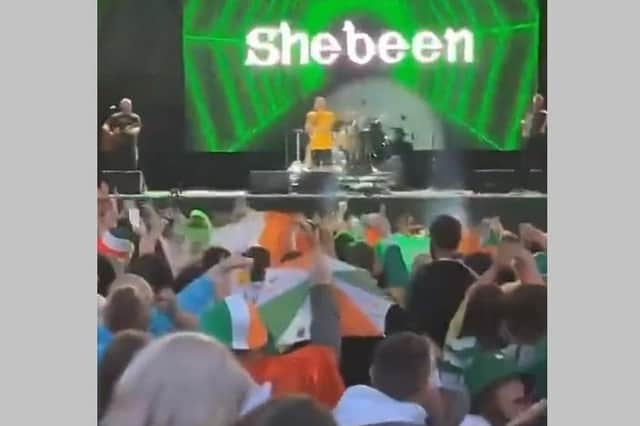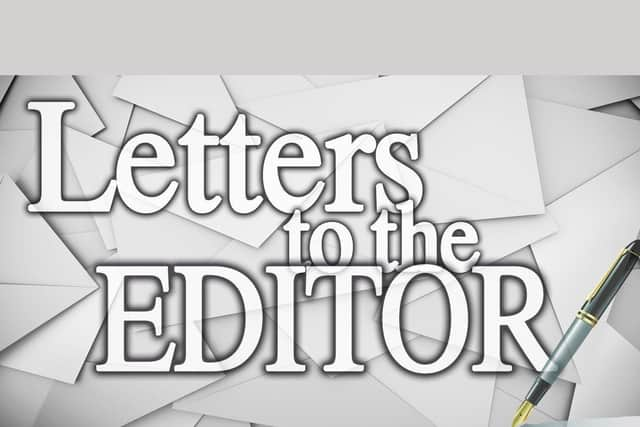Jamie Bryson: Charity Commission can’t say what charitable purpose is served by pro IRA concerts


There are few people who will be surprised as to the manner by which the West Belfast festival descended into the glorification of IRA terrorism on Sunday evening.
It is, for republicans, an important – perhaps for some the most important – part of the festival: it is about legitimising and normalising the IRA. Put simply, the objective is re-writing the past.
Advertisement
Hide AdAdvertisement
Hide AdThat republicans, aided by various surrogates, would seek to do so should shock no-one. That is why republicans being republicans and revelling in the murder of men, women and children is not the story here. Rather, the real story is how the Charity Commission determined that the organising of such events was consistent with charity law.


In responding to a complaint by Gary Murray, a victim of the IRA’s Shankill bomb whom I represent, the commission acknowledged that the “organising” of events which includes the musical acts glorifying IRA terrorism was upsetting and offensive for Mr Murray, but – without any rational casual connection between the factual background/legal requirement and their finding – held that such actions were consistent with charity law, and the charity’s purposes.
This is an extraordinary position for any public body to adopt. Can one imagine, for just one moment, an event in England which glorified the 7/7 or 9/11 bombers being held to be compatible with charity law?
Only in Northern Ireland would such somersaults be performed in order, I believe, to avoid upsetting the powerful political machine which drives the republican agenda, aided by a well-resourced industry of lobbyists and surrogates.
Advertisement
Hide AdAdvertisement
Hide AdBut, on this occasion, there is no way out. It is simple: every act of a charity must be firstly consistent with one of the charitable purposes exhaustively set out in section 2 (2) of the Charities Act (NI) 2008, and secondly must satisfy the ‘public benefit’ requirement, which essentially means that the relevant activity must be for the enhancement of the public interest.
The Charity Commission, unsurprisingly, have been unable to answer a simple question: which charitable purpose is served by organising (and they accept these are events organised by the West Belfast festival) musical concerts which glorify IRA terrorism?
There is simply no credible answer to that, and that being so, it exposes the fundamental error at the heart of the Charity Commission’s determination on this issue.
There was no effort, as far as I can see, by the West Belfast festival to ensure such glorification of terrorism did not take place, but rather the organisers used their logo and social media pages to expressly promote IRA rebel bands, selling tickets at £20 per person.
Advertisement
Hide AdAdvertisement
Hide AdThe Charity Commission now faces an existential crisis; they have given the green-light to an event expressly promoting and glorifying IRA terrorism. How can any victim of the IRA, or unionist generally have confidence in the commission given the stance adopted?
In many people’s minds, it will be felt the commission has been bullied into silence out of a fear of the republican movement’s political and civic machine being turned upon them if they dared to – as the charity regulator – seek to stop the festival hosting events which ‘celebrate’ the IRA.
That raises a more fundamental and far-reaching issue beyond the scope of this article, but it is worth considering just how much the republican movement influences other public bodies – note for example how no-one was held to account for the way in which the massive funeral of the IRA Bobby Storey was given special treatment when it breached Covid rules.
It is nevertheless important to note that, for those from the nationalist background, the West Belfast festival is an important event. There are various panels and events which are totally benign, and in fact are on some occasions very positive.
Advertisement
Hide AdAdvertisement
Hide AdHowever, these positive aspects of the publicly funded festival are then overshadowed by the shameless and deliberate glorification of IRA terrorism which takes place on the final night of the festival. This is not divorced from the wider festival, but rather the promoted and endorsed ‘finale’.
That means all those who have endorsed the festival – including public funders and figures – ought to face questions as to their stance on the final night’s events. Do they support or are they willing to turn a blind eye to the glorification of IRA terrorism?
The issue here is how public authorities, and funders, are endorsing and accepting as legitimate the conflict-narrative that the IRA were the ‘good guys’. This must never be permitted to go without challenge.
Finally, I should say I am disappointed that the airwaves and columns of he mainstream media have been missing the nationalist elite on this issue; surely they have something to say?
Director of NI Policy Centre for the Union and author of NI Constitutional law series, Co Down